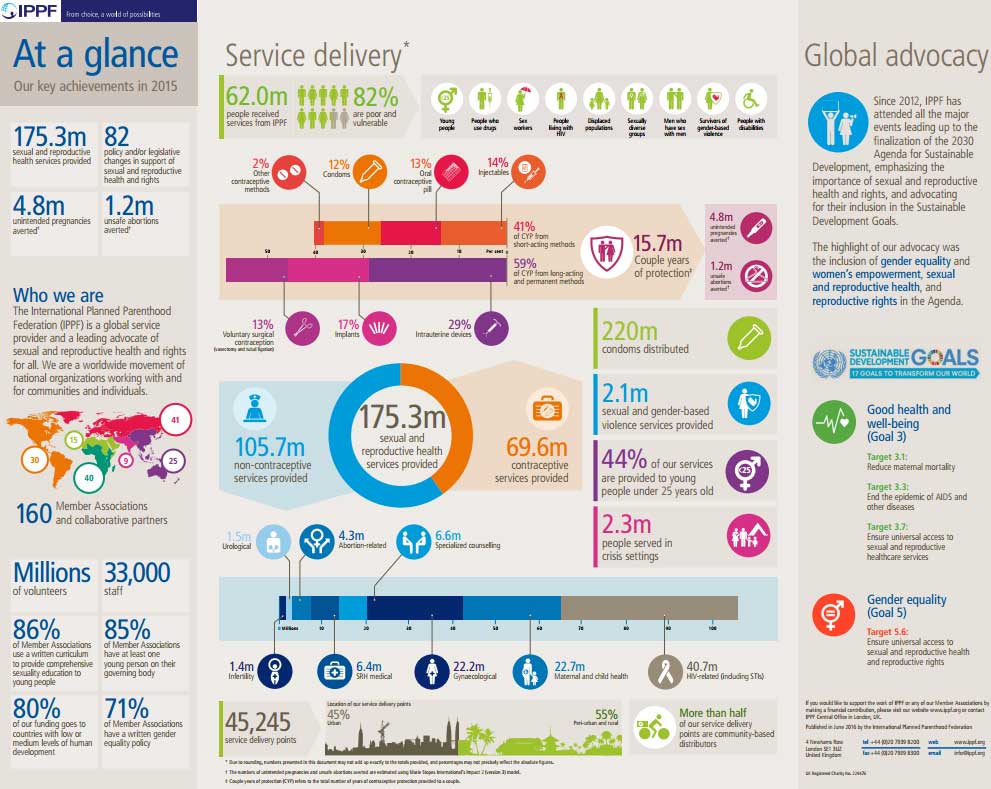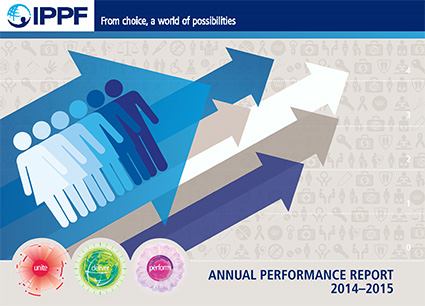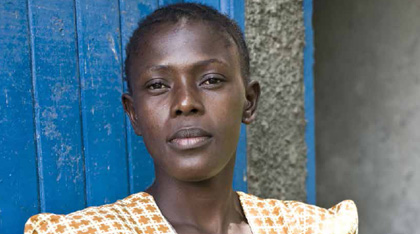Spotlight
A selection of resources from across the Federation

HIV Theory of Change
Our HIV Theory of Change is to clarify the goals and vision of IPPF’s HIV programme and to articulate the different pathways and strategies IPPF uses to contribute towards its HIV goals and vision.
Filter our resources by:


| 27 May 2016
Addressing sexual and reproductive health and HIV needs among key populations
This factsheet summarises the results of the past collaboration between BACKUP and the International Planned Parenthood Federation (IPPF) on the ‘Shadows and Light’ project.

| 10 August 2015
At a Glance 2014
Key facts and figures highlighting IPPF's achievements in 2014.

| 30 June 2015
Annual Performance Report 2014-15
2014 was our third year implementing IPPF’s three Change Goals – Unite, Deliver and Perform. We have monitored the trajectory of our growth in performance to date, and are already seeing remarkable success in all three areas, as presented in our Annual Performance Report 2014-2015. Member Associations and collaborative partners in 55 countries contributed to 81 changes in policy or legislation that support or defend sexual and reproductive health and rights. At the regional and global levels, IPPF’s advocacy contributed to 18 changes, of which 12 were advances in safeguarding sexual and reproductive health and rights in the post-2015 development framework. With the delivery of 149.3 million services in 2014, we are on track to achieve our ambitious target of doubling the number of sexual and reproductive health services provided between 2010 and 2015. Over eight in ten clients who accessed services were poor and vulnerable, while almost half of our services went to young people. IPPF’s achievements in 2014 contribute to a strong performance culture where decisions are based on data, organizational learning happens at all levels, technical support is provided to increase effectiveness, and investments are made to support communities most in need.

| 01 September 2014
HIV and Stigma: The Media Challenge
Despite the progress being made in the global response to HIV, stigma continues to be a major factor hindering HIV prevention, treatment, care and support, and affecting the overall health and wellbeing of people living with HIV. The media plays an important role in influencing people’s attitudes towards HIV, yet it is far from reaching its full potential. Many governments and funders prefer to focus on service delivery, which has measureable results, whereas it’s much harder to measure the impact of media initiatives that aim to bring about societal change. IPPF jointly with IBT (International Broadcasting Trust) has published this research report “HIV and Stigma: The Media Challenge”, which aims to provide an overview of media initiatives seeking the reduction of HIV-related stigma, while highlighting the case study of Swaziland.
| 13 August 2014
At a Glance 2013
Key facts and figures highlighting IPPF's achievements in 2013. IPPF provided 136.6m sexual and reproductive health services and averted 580,000 unsafe abortions.

| 24 July 2014
“Stigma is still my most serious challenge”
This publication shares the experiences of people living with HIV. Men and women from Ethiopia, Mozambique and Swaziland talk about HIV-related stigma and describe their courage, inspirations, suffering, resilience and determination to trigger change. Their stories demonstrate how stigma and discrimination can hinder access to vital support and care and the prevention, testing and treatment of HIV. National and international organizations working on HIV-related issues have an immense responsibility towards people living with HIV, to change the unjust reality revealed by these personal stories into a better one. We must increase our efforts towards ensuring everyone enjoys a dignified, stigma-free life – one where every human being is valued and free of discrimination.















